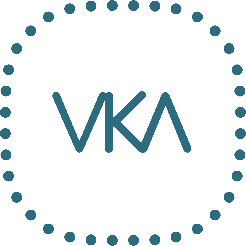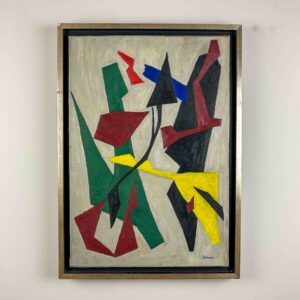Hans Ittmann
Hans Ittmann (Waalwijk 1914 – Amsterdam 1972) was a Dutch sculptor and painter. He was born the son of notary/lawyer Hendrik Coenraad Ittmann and Hillegonda Judith Welsch. He initially started studying law to later take over his father’s notary office. During this period, however, he also developed his talent for painting, and it soon became clear that he was a talented draughtsman.
From the mid-1930s, Ittmann started painting in a small studio on Amsterdam’s Looierstraat. In 1941, he made the final decision to focus entirely on art and broke off his law studies in Leiden. During World War II, he added sculpture to his creative repertoire, taking lessons from Cephas Stouthamer. His early sculpture was figurative and playful, in line with his paintings and watercolours of the period.
After the war, Ittmann joined the exhibition society De Onafhankelijken, where he worked with Juul Neumann. During this period, he abandoned figuration and was regularly mentioned as one of the abstract artists with an expressionist orientation. Like the members of the Cobra artists’ group, Ittmann was also interested in so-called “primitive” cultures, which can be seen in his collages, sculptures and work titles.
Between 1946 and 1948, Ittmann studied at the École des Beaux Arts in Paris on a scholarship from the French government, along with Siep van de Berg and Henk Peters. He took classes with Gimondeau and then worked in Ossip Zadkine’s studio for a year. In 1947, he married pianist and composer Trudy Kuipers.
In 1947, Ittmann joined the artists’ organisation ‘Vrij Beelden’, which advocated abstract and experimental art. In 1951, he joined the artists’ group ‘Creation: the Society for Absolute Abstraction’. Ittmann was one of the initiators of a reunion with Vrij Beelden, which resulted in the founding of the Liga Nieuw Beelden in 1955.
In the late 1950s, he participated in the Urban Spaces Study Group, where artists and architects collaborated on designs for Amsterdam. Ittmann founded a design for Surinameplein with Neumann and architect Gawronsky. Around 1960, he returned to a more expressive painting style, in which the influence of Jackson Pollock was evident.
From the 1960s, Ittmann increasingly concentrated on monumental sculptural work, with his metal sculptures becoming heavier and more organic by 1970. In 1972, Hans Ittmann died of a heart attack at his home in Amsterdam at the age of 58.
-
Hans Ittmann – Abstract Composition, 1945 – oil on canvas, framed
Price upon request


